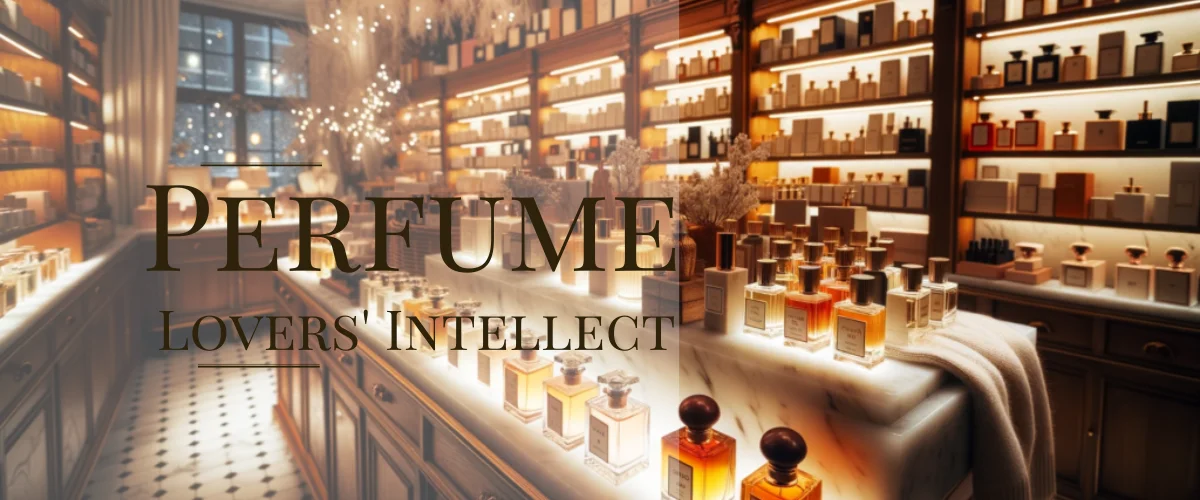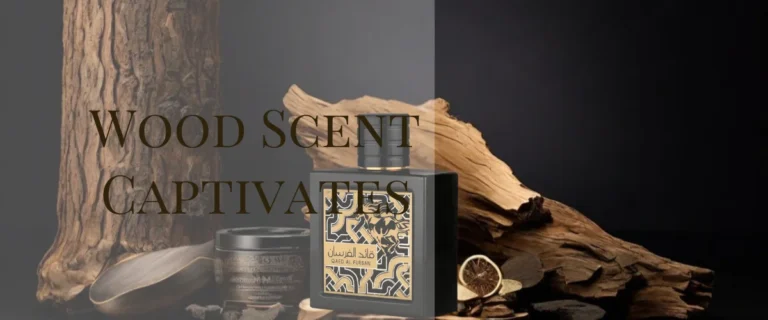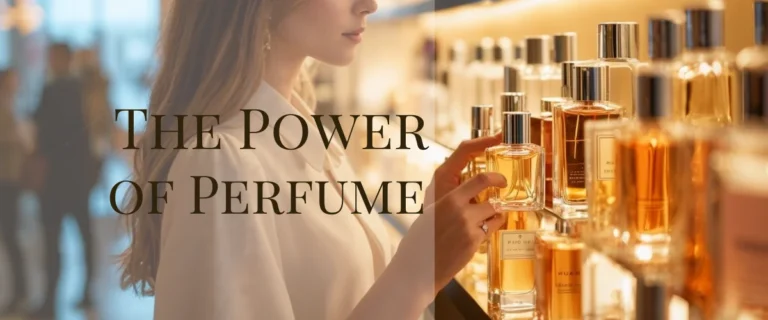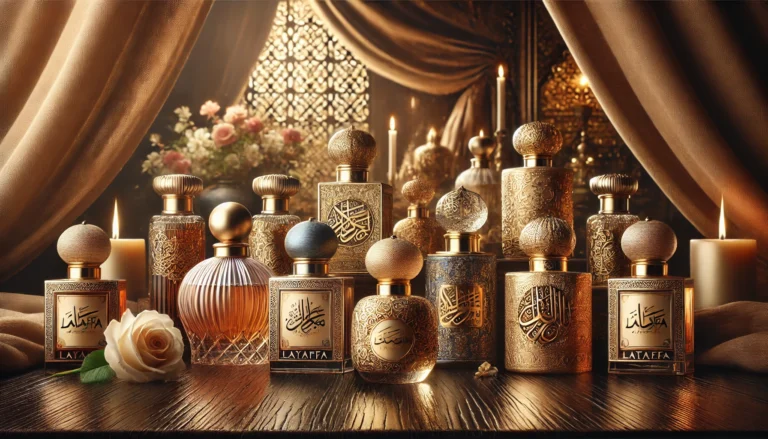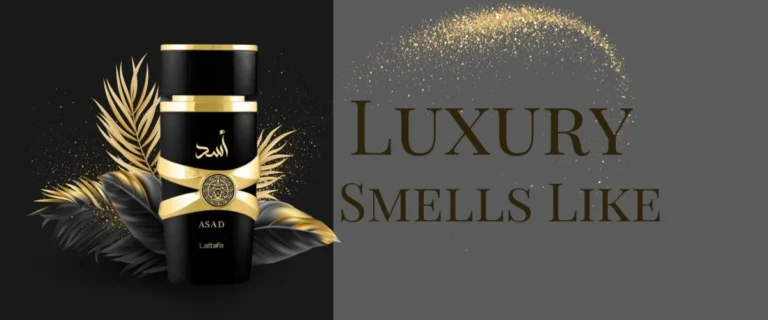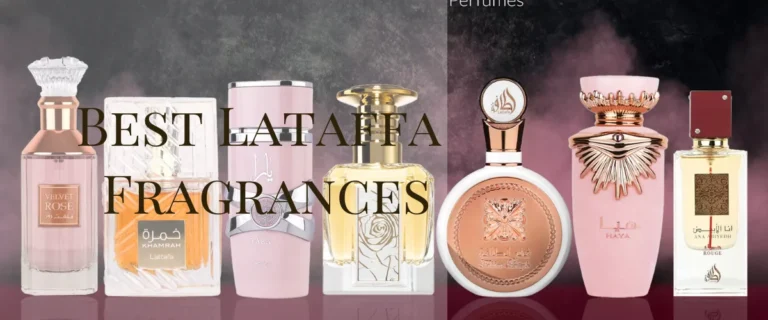Perfume Lovers’ Intellect: The Subtle Art of Scent Appreciation
Perfume is not merely a fragrance; it is an intricate language of emotions, memories, and stories—silent yet profoundly powerful. For those who truly understand the art of scent, a bottle of perfume is far more than just a luxury; it is a key that unlocks an emotional depth and intellectual exploration of the senses. The world of perfume is a world of complexity, elegance, and mystery—a world where the mind and heart come together in a symphony of experience. This is the realm of perfume lovers, whose intellect transcends beyond mere preference for scent, venturing into a nuanced understanding of fragrance, culture, and personal identity.
Perfume appreciation is an art and a science, a journey of discovery that engages both the rational and the intuitive. It is an intellectual pursuit for some, a way of immersing oneself in the delicate complexities of notes and accords, of tracing the history behind each fragrance, and of understanding how a scent can shape and even alter one’s perception of the world. Let’s take a deeper dive into why perfume lovers embrace this intricate intellectual pursuit and how their understanding of fragrance goes beyond just smell.
The Chemistry Behind Scent: A Dance of Molecules and Memory
At its core, perfume is the science of chemistry. The perfume bottle you hold in your hand contains a masterful blend of molecules, carefully crafted by perfumers to create a balanced and harmonious scent. But the intellect of a perfume lover doesn’t stop at simply identifying these elements. True perfume aficionados dive into the molecular structure of a fragrance, understanding how different molecules interact with each other and how they evolve over time.
For instance, the base notes of a perfume, such as vanilla, sandalwood, or musk, are the final impressions a fragrance leaves behind. They are slow to develop and last the longest. Middle notes, like jasmine or lavender, serve as the heart of the fragrance and reveal themselves after the top notes have evaporated. These are the scents that linger in the air after you’ve moved on. Then there are the top notes—citrusy, spicy, or fresh notes—that captivate you upon the first spray but fade quickly.
Perfume lovers with an intellectual curiosity often begin to notice these shifts and understand how the fragrance evolves over time, almost as if watching a symphony of scents unfold. They begin to appreciate the “transition” from top to middle to base note as a journey of the senses, much like a well-constructed novel or a piece of art that reveals its deeper layers with time. It’s an intellectual puzzle that invites exploration, testing the mind’s ability to discern and enjoy the subtleties of every note.
The Emotional Intelligence of Fragrance
Perfume, at its heart, is also an emotional experience. It speaks to our subconscious in a language that is more subtle and intimate than words. The fragrance you choose can transform your mood, evoke memories of the past, and even influence how others perceive you. For perfume lovers, this emotional intelligence becomes an art form—an understanding of how scent can alter one’s own emotional landscape and how it can impact the perceptions of those around you.
Take, for instance, the scent of lavender, known for its calming properties, or the sharp, fresh zest of citrus that can invoke feelings of energy and revitalization. A perfume lover doesn’t just wear these fragrances for their pleasant smell but understands the mood or atmosphere they evoke. This deeper connection to fragrance is a kind of emotional intelligence that goes beyond surface-level enjoyment. It’s an understanding that perfume is not merely an accessory but a medium through which one can communicate without words—communicating one’s mood, personality, and even one’s state of mind.
Fragrance becomes a mirror that reflects the wearer’s inner world, an extension of their identity. Perfume lovers often curate their scent wardrobe the way an artist chooses their paints, seeking fragrances that represent their evolving moods, seasons of life, or particular moments in time. They might choose a rich, complex fragrance for a special evening, or a light, floral one for a spring morning. Each choice is a deliberate expression of self—one that carries emotional weight.
Cultural and Historical Appreciation: The Story Behind the Scent
What truly elevates perfume into an intellectual pursuit is the history and cultural significance embedded in each fragrance. Every scent tells a story. Whether it’s the ancient use of frankincense in religious rituals, the exquisite allure of rose in the courts of the French monarchy, or the modern resurgence of oud in contemporary Western perfumery, perfume lovers are often drawn to the rich cultural tapestries woven into the compositions of their favorite fragrances.
Understanding perfume goes beyond its aromatic appeal—it becomes a study in history, art, and tradition. A perfume lover is not merely interested in how a fragrance smells, but in how it came to be, the influences behind its creation, and the centuries-old practices that continue to shape the art of perfumery.
For instance, take the luxurious notes of oud, which have been used for centuries in the Middle East, believed to carry spiritual significance and offer protection. Oud’s journey from traditional Eastern medicine to becoming a coveted ingredient in Western perfumes tells a fascinating tale of cultural exchange and transformation. Perfume lovers who delve into such histories are not just exploring scents—they’re connecting to centuries of tradition, culture, and artistic craft that have shaped the fragrances we wear today.
Similarly, many perfumes are inspired by specific places—be it the dry, warm desert landscapes that inspire desert florals or the lush, verdant rainforests that evoke green, earthy notes. Understanding these cultural references allows perfume lovers to develop a deeper connection to the fragrance, enriching their appreciation beyond the olfactory experience.
The Intellectual and Sensory Pleasure of Layering Fragrances
For true perfume lovers, the act of selecting and wearing fragrance is a highly intellectual endeavor. One of the more advanced pleasures of the perfume world is layering scents to create something uniquely personal. Layering is an art, one that requires knowledge, intuition, and a fine-tuned sense of balance.
Just as a chef might combine different spices to create the perfect dish, a perfume lover combines notes from different perfumes to create a personalized olfactory masterpiece. Perhaps a citrus scent is layered with woody undertones to create an invigorating yet grounding effect, or a floral note is paired with something smoky and spicy to add mystery. The options are endless, and mastering the art of layering requires both a deep understanding of the fragrances and an innate creativity that is distinctly intellectual.
This layering process is an exercise in sensory intelligence. It requires an understanding of how different notes play off one another, which combinations will harmonize, and which might clash. It’s like composing a piece of music where each note must find its place in the larger composition.
Perfume as a Personal Intellectual Journey
At its core, perfume appreciation is an intellectual pursuit—an evolving journey where the senses meet the mind, where science intersects with art, and where culture and history combine with personal expression. For perfume lovers, fragrance is not just about smell—it’s about understanding, about unraveling the story each scent tells, about feeling the emotional resonance of a particular note, and about appreciating the craftsmanship that goes into creating a bottle of perfume.
Perfume lovers approach fragrance with a deep intellectual curiosity. They don’t simply wear perfumes; they experience them, study them, and live with them. Their passion for perfume is not just about having a beautiful scent to wear—it’s a lifelong exploration of olfactory experiences that are as rich, complex, and layered as the fragrances themselves.
In this world, scent becomes more than an accessory; it becomes a philosophy, a way of seeing the world. It’s the subtle art of scent appreciation—one that transforms the act of wearing perfume into a sensory and intellectual journey, a dance of molecules, memories, and emotions. And for the perfume lover, this is where true pleasure lies: in the intellect of scent.

